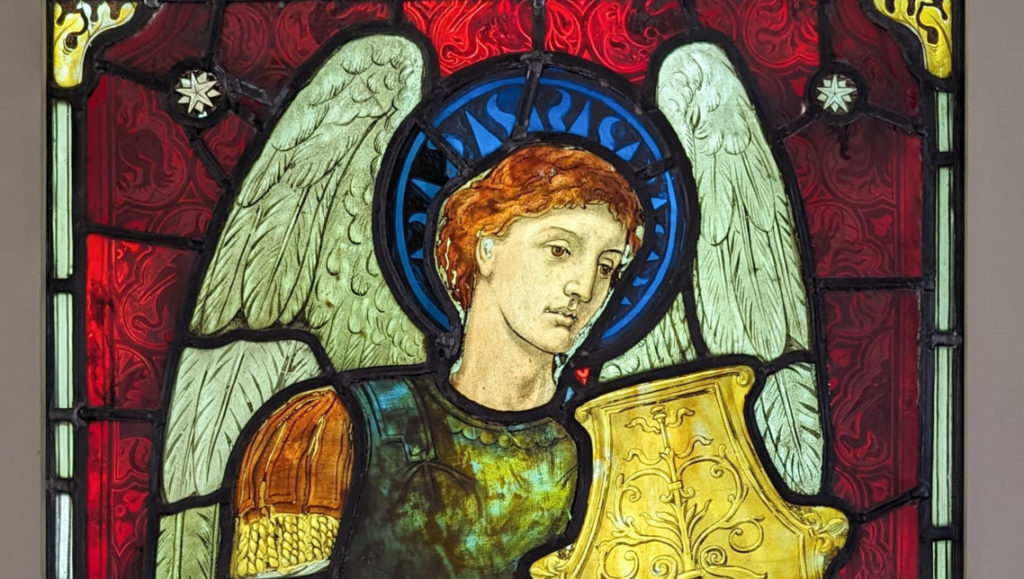Scripture suggests that angels are the ordinary means by which God gets things done — the way he guides world history, as seen in the Book of Daniel and the Book of Revelation. The ancient rabbis and Church Fathers believed that angels also maintained the physical laws of the universe. They kept the stars in their courses, and they swelled the rivers when the time was right. Scripture reveals that individual human beings have guardian angels, and so do nations (see Daniel 10:13) and churches (Revelation 2:1).
Scripture tells us the names of only three angels: Michael, Gabriel, and Raphael. Michael appears in three books of the Bible: Daniel 10:21, Jude 9, and Revelation 12:7.
He is mighty. Revelation 12:7 depicts him as commander of the heavenly host as they battle Satan and the rebellious spirits. We know how the battle ends, and we know Michael is victorious (Revelation 12:10). Still, the war will rage on until the final consummation of history.
From early on, Christians have invoked Michael as they faced persecution. The Roman emperors may have been the earthly manifestation of their battle. The primary threat, however, was not to the physical well-being of believers, but to their souls. Would they be faithful through the ordeal?
Alone, they could not do it. Yet Christians had the example of Jesus before them. When tempted, he had prevailed with the assistance of angels (see Mark 1:13). In the Garden of Gethsemane, when he was in agony — the Greek word literally means “battle” — he was assisted by an angel (Luke 22:43).
Now, why would Jesus call upon angels? He’s all-powerful. He had created the angels and given them whatever powers they had. Jesus didn’t need the angels’ help.
So why did he accept it? Perhaps he did this so that we could learn how it’s done. He did it to show us the way the world works, not only in its visible and material manifestations, but in its invisible and spiritual workings as well.
Jesus doesn’t need angelic help, and he doesn’t need our help. Yet he confers such dignity on us — and on the angels — that we can engage with one another as we accomplish God’s will upon the earth.
From Jesus we’ve learned this, and so we go to our personal guardian angels and St. Michael, too. We should know their presence, as St. Peter did in the Acts of the Apostles. And we should speak with them, as the prophets did in the Old Testament. We may do this silently, in our souls. We are spiritual beings as the angels are, and we can communicate with them through the ways of prayer.
In time, we will be more attuned to their promptings as we go about everyday life. We can approach not only our own guardian angels, but those of our family members, asking help in building up relationships.
The Church marks the feast of St. Michael and All Angels on Sept. 29 and the Guardian Angels on Oct. 2. We have a lot to celebrate.

